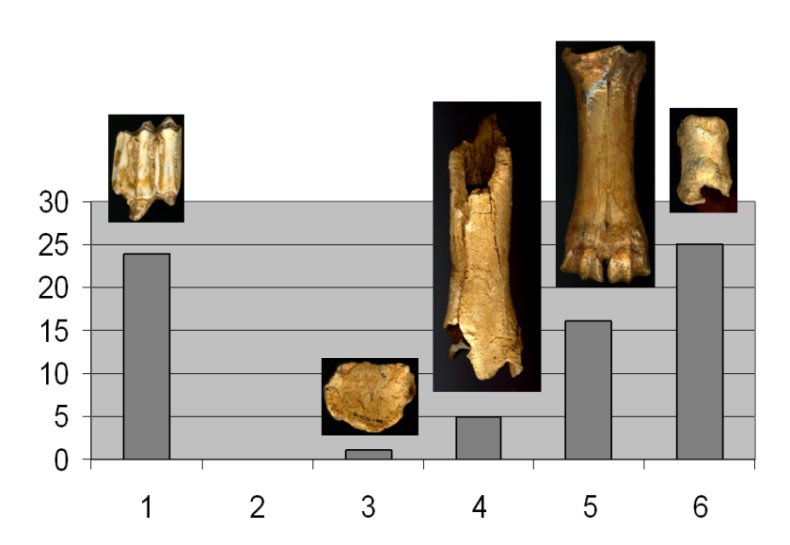 Institute of Archaeology Institute of Archaeology |
[Slovenian] |
| Home | Members | Programme | Projects | Laboratory |
| Database | Publications | Library | Links | Archive |
|
FRAGMENTS OF ICE AGE ENVIRONMENTS Late Pleistocene hyaena Crocuta crocuta spelaea (Goldfuss, 1823) from Baranica Cave (southeast Serbia): competition for a den site Vesna DIMITRIJEVIĆ
Abstract The majority of caves in Serbia that contain Pleistocene deposits were “bear caves”. The only hyaena den cave up to now recognized is Baranica Cave (southeast Serbia, valley of the river Trgoviški Timok, near Knjaževac). It is a composite cave with two parts designated as Baranica I and Baranica II with an entrance into Baranica II some 20 m above Baranica I. Faunal remains show similar composition and taphonomy in both parts. There is a wealth of herbivorous and carnivorous species remains, but hyaena remains predominate. Bone fragmentation is high, mostly due to damage made by hyaena teeth. There was competition for the living space among cave hyaena and other carnivores, as well as humans, but hyaena had taken on a major role in Baranica I and kept an inviolable den site in Baranica II. Keywords: Cave hyaena, Late Pleistocene, Baranica Cave, Serbia, den site, competition *** 2011, (Opera Instituti Archaeologici Sloveniae, 21), 280 pages, 44 b-w photographs, 10 drawings, 52 tables, 71 graphs and 9 maps, 20 x 29 cm hardcover, ISBN 978-961-254-257-3. |
